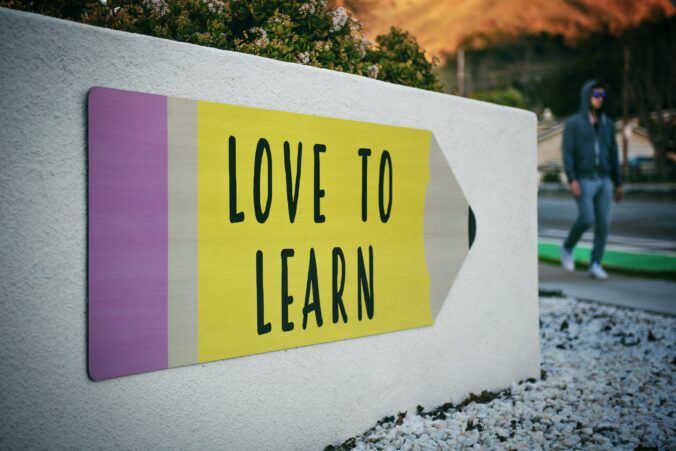Larissa your blog post provides such a clear and engaging explanation of Open Pedagogy and its potential. Your comparison between traditional teaching and Open Pedagogy highlights how transformative student-centred learning can be. I especially liked your discussion of “renewable assignments,” as it shows how learning can extend beyond the classroom and benefit the wider community. Your insights into OER’s role in biochemistry are particularly inspiring. The idea of sharing lab notes or study guides to build a collaborative learning network is powerful and relevant. It’s exciting to see how these practices can foster inclusivity and global collaboration in science.
Category: EDCI 339 – Peer Response Posts
Hanna, I really enjoyed reading your recent blog post about Open Pedagogy. Your description is really well written; it highlights how this practice can be transformational. You also firmly pointed out that students are co-producers in the process of learning, which means it encourages student empowerment and welcomes their involvement. I also liked your concept of OER as a tool for minimizing cost constraints. These resources are indeed as flexible and adaptive as would enhance and personalize the education to learners’ diverse needs. It was nice to read your discussion on the trends of OER, especially the aspect of its applicability in lower-income countries.
https://danasportfolio.opened.ca/
Hi Dana,
I appreciate your blog post, which captures the meaning of Open Pedagogy. You did a great job explaining the underlying aspects of working together and how OER can change education for the better. For me, the concept that students create knowledge alongside the teacher rather than receiving knowledge from the teacher is so exciting and actually, I totally agree. Another essential aspect that you mentioned is Creative Commons licensing – it makes people share responsibly and protects author’s rights which are extremely important to maintain this open education environment. One thing I find super interesting about your proposed global OER trends is the topic of inclusiveness. Culturally sensitive resources must meet the needs of learners with culturally related differences. Great insights!
https://okmarsha.opened.ca/blog-2/
Building on your reflection on the networked pedagogy and digital learning, you can seen that you have maximally leveraged the benefits of the schemes like Reddit & linked in to enhance your learning and knowledge in the subject of Child and Youth Care or CYC. The time spent on these platforms provides a great example of how networked pedagogy works and how diverse opinions and collaboration enhances your personal development as a professional. You’ve engaged yourselves in a highly constructivist approach to learning where their classroom involvement involves seeking advice, giving feedback and sharing resources. It enriches you but at the same time benefits your co professionals as it enables growth and sharing of knowledge within a given disciplinary setting.
That is why the idea of cognitivism you mentioned is also important. In CYC where thinking critically and reflection is key, the application of cognitivism to online learning environments is revolutionary. Not only knowledge is activated through various quizzes and notes but the individual is also forced to interactively think through about the things done in the classroom or elsewhere. Besides turning reflections in to classmates and instructors, learners augment their group knowledge The viewpoints contained in the shares build an intellectual environment. This process resembles the process of networked pedagogy characterized by interaction in students’ learning process improving the learning journey.
I also fully agree with your focus on the instructor’s function as a creator of a welcoming and encouraging learning community. Teaching online, it is especially important for instructors to be both available and adaptable, not only in terms of availability but also in terms of the demands of student differ on classes. Providing options for students that might not work well in group can be admired as one of the flexible approaches. The best thing that any online instructor could do is not only share information but also ensure that student’s gender is not an issue to stop them from participating in the course.

Response to Ling Fangs Blog #2
This blog post offers a deep reflection on pedagogy, particularly in the context of online learning. It effectively combines personal experiences with educational theories like networked pedagogy and constructivism, providing a thoughtful exploration of how these methods enhance learning. The writing demonstrates a solid understanding of teaching and learning practices, connecting personal learning preferences to broader educational frameworks.
One strength is that the discussion of networked pedagogy is clear and highlights how social interaction and peer collaboration can enrich learning, while the emphasis on constructivism shows a preference for active, discovery-based learning. Additionally, the post does well in recognizing the importance of feedback in creating a strong teaching presence, especially in online settings where traditional cues are absent.
Overall, the post is well-written, insightful, and relatable.

Peer Response #3 – Hanna Kim
This is my Peer Response to Hanna’s Introduction blog & first module post.
Hanna is in her second year of studying computer science. Something I found really cool is that she is involved with UVics’ Women in Engineering and Computer Science (WECS) organization. This group encouraged and influenced her decision to study Comp Sci. While computer science is something I definitely tend to avoid studying, I think it is so cool getting to take various elective courses where I ge to meet and interact with people who study vastly different fields. Hanna explains the subject of Open Learning, Distributed Learning, Modes of Learning, Digital Literacy, and Digital Identity. She did a great job of explaining a summarized version of what we learnt in Module #1

This Peer Response is focused on Larissas first blog post, discussing the Exploration of Open and Distributed Learning as well as an introduction to herself to help readers get to know her.
Larissa is in her third year studying Biochemistry. Influences at school helped her see science in a creative light, which motivated her to want to learn more and develop a deeper understanding of the world around her. She mentions she has hopes to work in the medical feild in the future. I really respect students like Larissa; I know the STEM classes are a lot of work, and for her to take on that workload while also taking courses such as this EDCI leads me to believe she will be very good at whatever she ends up doing for work. I think taking lots of different classes from different areas of study creates more well-rounded people. Larissa discusses Open & Distributed learning but explains she prefers in-person courses. I think it is interesting to see students take courses in formats that they don’t necessarily like. I personally instead take asynchronous classes as it works better for my schedule.

For this Peer response Post I have reflected on Dana Baylocks “About Me” and “Blog Post 1”
Dana’s first blog post focuses both on what we learnt in the first module of this course as well as an introduction to her, allowing readers to get to know her better. Dana is a biology major and says her favourite course so far was her second-year ecology class. I think she did a great job of showing us her interests and passions through the background and featured pictures on her blog site. She includes photos of trees, flowers and wildlife. Dana gives the reader a great explanation and summary of topics we learnt about in the first module of this course, including Digital Literacy, Open Education and Digital Identity.



